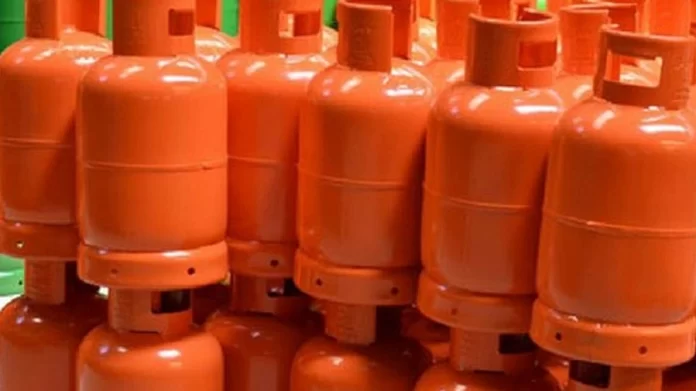Oil and gas experts have called for investment in domestic gas infrastructure, stressing that N250 billion intervention from the Central Bank of Nigeria to boost gas supply in the country must be an elixir for private sector-led investment.
Worried over the soaring price of Liquefied Petroleum Gas (LPG) and Compressed Natural Gas (CNG) in Nigeria amidst disruption to the operations of the Nigeria LNG due to flooding, the stakeholders insisted that the country’s 208 trillion standard cubic feet of gas must be useful to the citizen.
Recall that the National Gas Expansion Programme (NGEP) was introduced to make CNG the fuel choice for transportation and LPG the fuel choice for cooking, captive power, and small industrial complexes.
The framework for the implementation of the intervention facility for the NGEP established by the Central Bank of Nigeria introduced N250 billion facility to help stimulate investment in the gas value chain. While the objectives were to improve private financing access, stimulate investments in infrastructure, adopt CNG and LPG, develop gas-based industries such as petrochemical, and boost employment, stakeholders in the value told The Guardian that more operators need to be able to access the funding.
As of June this year, National Bureau of Statistics (NBS) data had shown that the average retail price for refilling a 12.5kg cylinder of cooking gas increased by 121.2 per cent to N9,486 in June 2022 from the same period in 2021.
On a month-on-month basis, it also rose by 8.7 percent from N8, 726 in May. The price of CNG, which the Ministry of Petroleum Resources had projected would be below N100 per litre is already trading above N400 as most products are imported making the disparity between the naira and dollar drastically affect the pump prices.
With the challenges expected to go worse due to the disruption of Nigeria LNG’s operations owing to flooding and disruption to the gas market globally following the Russia and Ukraine war, Nigeria had been importing over 55 per cent of LPG as the demand intensifies in the country.
Despite the huge gas deposit in the country, Nigeria has had to rely on smaller African countries like Algeria, Equatorial Guinea, and others to meet demand.
The prevailing situation linked to lack of investment had reportedly forced the CBN to inject about N250 billion loan to leapfrog the Federal Government’s domestic gas expansion program.
The CBN had stated that the objectives of the facility being implemented in collaboration with the Ministry of Petroleum Resources were to improve access to finance for private sector investments in the domestic gas value chain; stimulate investments in the development of infrastructure to optimize the domestic gas resources for economic development; Fast-track the adoption of CNG as the fuel of choice for transportation and power generation, as well as LPG as the fuel of choice for domestic cooking, transportation and related activity recommended by the Ministry of Petroleum Resources.
President of Petroleum Products Retail Outlets Owners Association of Nigeria (PETROAN), Prince Billy Harry said while the N250 billion funding made available by CBN remained an elixir, the conditions for accessing are too stringent.
He noted that the apex bank must understand the dynamics of the situation in which most of the small-scale indigenous companies in the petroleum marketing sector operate.
According to him, unless the conditions are lowered to accommodate the marketers the projected objectives of the intervention could remain a mirage.
Harry said there was a need for more investment in LPG and CNG, adding that huge gap exists in gas infrastructure in the country.
He said there was a need for the CBN to work with associations in the sector to drive the agenda of domestic gas utilisation, stressing the country has everything it takes to stop importation of LPG.
“Nigeria has huge gas resources and should not be importing gas. I think the intervention by the CBN is commendable but more is needed. The infrastructure needed to unlock gas is huge,” Harry said.
Given the growing gas demand in Nigeria, Harry said there’s no sense if the current LNG production in the country is focused on the export market when Nigeria is attempting to increase domestic LPG consumption to five million metric tonnes (mmt).
PricewaterhouseCoopers’s Associate Director, Energy, Utilities, and Resources, Habeeb Jaiyeola, stated that it was high time for the government to stop the importation of LPG, stressing that the CBN N250 intervention remained a critical elixir towards the plan.
If complemented with existing gas infrastructure investment like the AKK pipeline, the provisions in the Petroleum Industry Act, and other initiatives, Jaiyeola stated that the country’s stands at the advantage of meeting local demand for LPG.
Amidst plans to meet net-zero goals as well as Sustainable Development Goals and the Paris Climate Change pact Jaiyeola urged industry players to take advantage of the N250 billion Central Bank of Nigeria (CBN) intervention facility to address the bottlenecks in the domestic gas market, while urging sustainable finance into the gas sector.
“The move by the CBN is laudable and the intent of the fund is also quite comprehensive and seeks to ease funding challenges for all players within the LPG value chain,” Jaiyeola said.
Dayo Adeshina, Programme Manager, National LPG Expansion Implementation Plan, had said the intervention was critical for the sector, noting that there was a need to tweak the plan to ensure that players in the sector seamlessly access the loan.
He noted that the objectives of the intervention would be achieved if commercial banks stop treating the loan as commercial loans.
“To access the loan, it is your commercial banks that will approach the CBN but unfortunately the banks were treating it as commercial loans.
Typically, they would ask for the same things they ask when you ask for normal loans; equity contribution, security, and all.
“All these slowed down the number of people whose balance sheets can allow them to access the loan. That is being looked at to see how associated bottlenecks can be resolved to make it easier for people to access,” Adeshina said.
The Ministry of Petroleum Resources had earlier noted that the funding was critical to domesticate the development of gas resource and allow indigenous players to advance the sector.
An operator familiar with applicants at the Nigeria Liquefied Petroleum Gas Association (NLPGA) said members have been able to access the funding but added that a lot has to be done to make LPG competitive.
The operator, who pleaded anonymity noted that while the financial support would improve domestic gas utilisation, subsidies on electricity and premium motor spirit remain a disincentive to investment in gas space.
According to him as long as people have the cheaper options of cooking with biomass, electricity, or powering their vehicles with cheaper PMS, investors in the gas space would not have needed a return for their investment.
Damilola Owolabi, Chief Executive Officer, Selai Gas Station Ltd, said a lot could happen in the LPG space but funding critical infrastructure remains a challenge.
She noted that her company has had to limit operations due to a lack of infrastructure to lift products adequately from the port.






